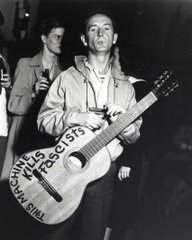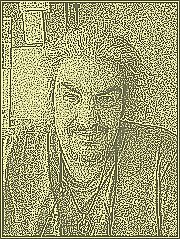Libby's guilty verdict: Media myths and falsehoods to watch for
I know this is a long post from Media Matters but it answers all the stupid right wingnuts that are making excuses for Libby.
On March 6, a federal jury found former vice presidential chief of staff I. Lewis "Scooter" Libby guilty on charges of perjury, obstruction of justice, and lying to federal investigators. In the wake of this decision, conservatives and other media figures can be expected to revive and advance numerous myths and falsehoods regarding the CIA leak case that have circulated throughout the media since Libby's indictment in October 2005.
In anticipation of this misinformation, Media Matters for America has listed those baseless and false claims likely to surface in the coming days and weeks:
- No underlying crime was committed. Since a federal grand jury indicted Libby in October 2005, numerous media figures have stated that the nature of the charges against him prove that special counsel Patrick J. Fitzgerald's investigation of the CIA leak case found that no underlying crime had been committed. But this assertion ignores Fitzgerald's explanation that Libby's obstructions prevented him -- and the grand jury -- from determining whether the alleged leak violated federal law.
- There was no concerted White House effort to smear Wilson. In his October 2005 press conference announcing Libby's indictment, Fitzgerald alleged that, in 2003, "multiple people in the White House" engaged in a "concerted action" to "discredit, punish, or seek revenge against" former ambassador Joseph C. Wilson IV. In August 2006, it came to light that then-deputy secretary of State Richard Armitage was the original source for syndicated columnist Robert D. Novak's July 14, 2003, column exposing CIA operative Valerie Plame's identity. Numerous conservative media figures subsequently claimed that this revelation disproved the notion of a "concerted" White House effort to smear Wilson. But to the contrary, David Corn -- Washington editor of The Nation and co-author of Hubris (Crown, 2006) the book that revealed Armitage's role in the leak -- noted on his Nation weblog that Armitage "abetted a White House campaign under way to undermine Wilson" and that whether he deliberately leaked Plame's identity, "the public role is without question: senior White House aides wanted to use Valerie Wilson's CIA employment against her husband."
- Libby was not responsible for the leak of Plame's identity. Some in the media have suggested that because Libby did not discuss former CIA operative Valerie Plame's identity with Novak -- the first journalist to report she worked at the CIA -- he is not technically responsible for the leak. But such claims ignore the fact that Libby discussed Plame's CIA employment with then-New York Times reporter Judith Miller on several occasions prior to the publication of Novak's column naming Plame as a CIA operative.
- Libby merely "left out some facts." Some media outlets -- such as The Washington Post -- have suggested that FBI agent Deborah Bond testified at the trial that Libby simply "left out some facts" when he was interviewed by her in 2003. Specifically, the Post asserted that Bond said Libby "did not acknowledge disclosing the identity of undercover CIA officer Valerie Plame to reporters." In fact, Bond testified that Libby actually denied having leaked Plame's identity or having had any knowledge of her -- this despite the fact that two reporters had already testified that he leaked Plame's identity to them.
- Libby's leak was an effort to set the record straight. Critics of the CIA leak case have repeatedly claimed that the indictment stems from an effort by Libby and Vice President Dick Cheney to rebut a purportedly inaccurate attack on the administration by Wilson. According to these critics, Wilson falsely accused Cheney of having sent him to Niger to investigate reports that Iraq had attempted to purchase yellowcake uranium from the African country. In fact, Wilson, in his July 6, 2003, New York Times op-ed, did not say he was sent by Cheney. Rather, Wilson wrote that it was "agency officials" from the CIA who "asked if I would travel to Niger" and "check out" a "particular intelligence report" that "Cheney's office had questions about," so that CIA officials "could provide a response to the vice president's office."
- There is no evidence that the Plame leak compromised national security. Some media figures critical of the CIA leak case have attempted to downplay its significance by claiming that no evidence exists that the public disclosure of Plame's identity compromised national security. In fact, news reports have indicated that the CIA believed the damage caused by the leak "was serious enough to warrant an investigation" and that the subsequent disclosure of Plame's CIA front company likely put other agents' work at risk. Further, Fitzgerald stated that Plame's identity had been protected by the CIA "not just for the officer, but for the nation's security." And in their recently published book, Hubris, Corn and Newsweek investigative correspondent Michael Isikoff reported that, at the time of the leak, Plame was the chief of operations for the CIA's Joint Task Force on Iraq, which "mount[ed] espionage operations to gather information on the WMD programs Iraq might have."
- Fitzgerald is a partisan prosecutor. Over the course of the CIA leak investigation and the Libby trial, conservative media figures have attempted to cast Fitzgerald as a "prosecutor run amok" who is engaging in "the criminalization of politics." But Fitzgerald's background and prosecutorial record undermine the suggestion that his pursuit of Libby was politically motivated. Indeed, Fitzgerald is a Bush administration political appointee who, as U.S. attorney, has investigated high-level public officials from both parties, including former Illinois Gov. George Ryan (R), Chicago Mayor Richard M. Daley (D), and Illinois Gov. Rod Blagojevich (D).
- Fitzgerald exceeded his mandate in investigating violations beyond the IIPA. The administration's defenders also have accused Fitzgerald of exceeding his original mandate. Media figures have repeatedly asserted or implied that Fitzgerald was appointed to investigate possible violations of the 1982 Intelligence Identities Protection Act (IIPA), which prohibits the knowing disclosure of the identity of a covert intelligence officer. In fact, his mandate was far broader. The Department of Justice granted Fitzgerald "plenary" authority to investigate the "alleged unauthorized disclosure" of Plame's identity.
- Plame's employment with the CIA was widely known. This falsehood has taken at least two forms -- that Plame's employment with the CIA was known in the Washington cocktail party circuit and that her neighbors knew that she worked for the CIA. In fact, Fitzgerald stated in the indictment of Libby that Plame's employment was classified and "was not common knowledge outside the intelligence community," a finding he reiterated at a post-verdict press conference. Moreover, as Media Matters noted, contrary to The Washington Times' assertion that "numerous neighbors were aware that she worked for the agency," none of the neighbors cited in The Times' own news reports or in other reports said that they knew before reading the Novak column that Plame worked at the CIA. Her acquaintances told reporters that they believed she worked as a private "consultant."






No comments:
Post a Comment